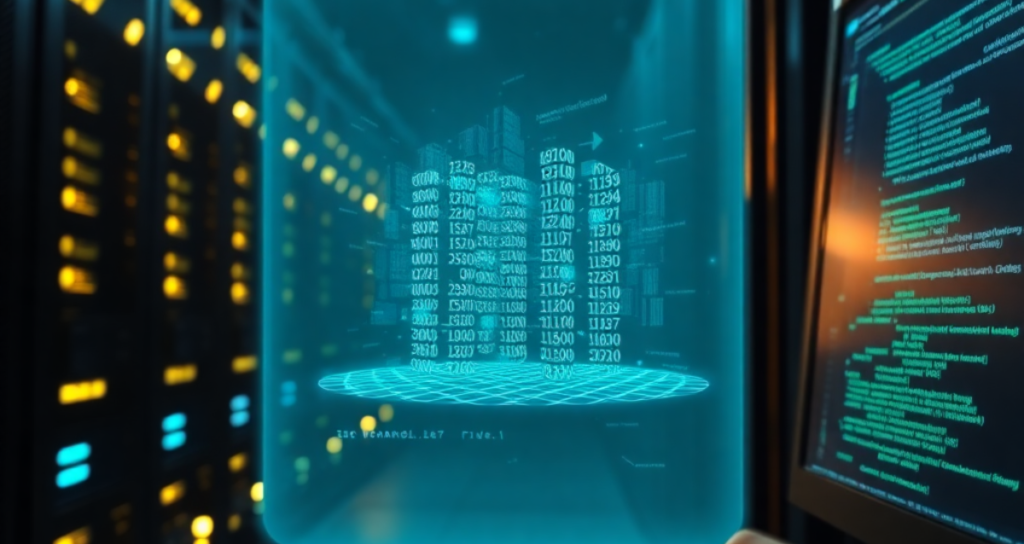Companies now need technical-skilled accountants to guide them through complex accounting and financial reporting obligations. Technical accounting is rather important in today’s constantly changing corporate scene in guaranteeing financial compliance, accurate reporting, and adherence to industry standards. This profession handles complicated transactions, regulatory changes, and financial analysis within a company unlike conventional accounting, which concentrates on bookkeeping and financial reporting.
Though with a technological component, technical accounting is a subfield of accounting akin to general accounting. Analyzing financial data and prior performance in this kind of accounting helps one project future revenues, expenses, and growth. It also entails distributing many tools to several departments for different projects, therefore guaranteeing efficient financial planning and implementation.
Table of Contents
Principal Duties of a Technical Accountant
A Technical Accountant fulfils many roles, guaranteeing adherence to financial rules while delivering comprehensive financial analyses. Their primary duties encompass:
• Applying complex accounting standards (IFRS, GAAP) to unique transactions.
• Structuring and analyzing complex financial instruments.
• Providing accounting guidance on mergers, acquisitions, and divestitures.
• Developing and implementing accounting policies and procedures.
• Researching and interpreting new accounting pronouncements.
• Liaising with auditors and regulatory bodies.
• Managing the accounting implications of new business ventures.
• Ensuring compliance with accounting regulations.
• Preparing complex financial reports and disclosures.
• Providing expert testimony in accounting-related disputes.
While technology is often a tool they use, their core function is the expert application of accounting principles.
Critical Competencies for Technical Accounting Success
Professionals in technical accounting have to combine analytical ability with technical knowledge to succeed:
- Strong Knowledge of Accounting Standards: Excellent awareness of accounting standards and thorough grasp of SEC reporting, IFRS, and GAAP.
- Analytical and problem-solving ability: Complex situations call for critical thought. Maintaining current with changing criteria is vital for research and interpreting abilities.
- Communication skills: It is important to explain difficult problems to audiences technical and nontechnical alike.
- Attention to detail: In Technical Accounting, accuracy is very critical and requires great attention to detail.
- Technical proficiency: Though not the main emphasis, knowledge of accounting software and data analysis tools is very helpful technically.
- Professional scepticism: Dealing with complicated financial data calls for a reasonable dosage of doubt.
- Ethical judgment: In Technical Accounting, maintaining integrity is a very vital ethical judgment. Mastery of accounting software; knowledge of ERP applications including SAP, Oracle, or QuickBooks.
Educational Path: Degrees, Certifications & Training
A career in Technical Accounting typically requires:
- Bachelor’s Degree in Accounting or Finance
- CPA (Certified Public Accountant) or ACCA Certification
- Additional Certifications such as CFA (Chartered Financial Analyst) or CMA (Certified Management Accountant)
- Constant professional growth via seminars and training.
- Practical experience is priceless whether you work in public accounting or a technical accounting position.
- Ongoing professional development: One must keep current on changing guidelines.
Technical vs. Financial Accounting: A Comparative View
| Feature | Technical Accounting | Financial Accounting |
| Focus | Complex transactions, compliance | General financial reporting |
| Standards Used | GAAP, IFRS, SEC regulations | GAAP, IFRS |
| Key Responsibilities | Revenue recognition, M&A, tax compliance | Balance sheets, profit & loss statements |
| Required Expertise | Advanced accounting knowledge | Basic financial management |
Auditor vs. Technical Accountant vs. Standard Accountant
• Technical accountant focused on standards, compliance, and complicated transactions.
• Auditor: Examines financial accounts for correctness and compliance.
• Conventionally minded accountant manages overall financial management, payroll, and accounting.
Real-World Examples of Technical Accounting in Action
- Revenue Recognition: Software business changing its revenue recognition in line with ASC 606
- Mergers & Acquisitions: A business combining finances after purchasing a smaller business.
- Lease Accounting: Following IFRS 16 guidelines for leasing agreements will help with lease accounting.
Technological Advancements Changing Technical Accounting

Technical accounting is changing due to automation and artificial intelligence.
- AI-Powered Financial Analysis: Among important developments is automated financial forecasting driven by artificial intelligence.
- Transparency Blockchain: Guaranturing tamper-proof financial exchanges
- Cloud-Based Accounting Software: Cloud-based accounting tools help to improve remote financial control.
Challenges and Solutions in Modern Technical Accounting
Technical accounting presents many difficulties:
• Maintaining fast-changing technology: One must be always learning.
• Privacy and data security: Sensitive financial data must be firstly protected.
• Combining many systems: It might be difficult to guarantee that several systems can interact efficiently.
• Talented shortfall: It might be challenging to identify competent Technical Accountants.
Among the solutions include making training and development investments for Technical Accountants.
• Putting strong security policies into place to protect financial information.
• Accepting cloud-based solutions with improved integration possibilities.
• Drawing in and keeping outstanding personnel with competitive pay and perks.
Trends and Innovations: The Future of Technical Accounting
Trends and innovations in both current and emerging technical accounting will shape its future. Driven by technical developments and growing regulatory complexity, Technical Accounting’s future is fast changing. Here is a summary of several important trends, separating between what is now actively influencing the area and what is just ahead:
1. Modern Trends:
Increased Focus on Data Analytics: Growing attention to data analytics already marks a significant change. Technical accountants are required more and more to examine massive databases, spot patterns, and provide analysis to back up decisions. This calls for using Excel, data visualization tools, and maybe more sophisticated analytics systems.
Greater Emphasis on Regulatory Compliance: Technical accountants are increasingly important in guaranteeing regulatory compliance as rules are becoming more complicated (revenue recognition, lease accounting). This entails keeping current on developments and analyzing how they affect the company.
Growing Demand for Specialized Skills: Technical Accountants with specialized knowledge e.g., in areas like financial instruments, international accounting, or certain industries are in increased demand as companies get more complicated.
Integration of Cloud-Based Solutions: Already changing the storage and access to accounting data is cloud computing. More businesses using cloud-based ERP and accounting solutions help this trend to pick up speed. This increases cooperation, accessibility, and efficiency.
Automation of Routine Tasks: Technical Accounting is already being affected by automation of routine tasks using RPA (Robotic Process Automation) and other technologies. This releases experts to concentrate on higher-value jobs like analysis and interpretation.
2. New Developments (Future Prospectives)
• Machine Learning and AI: Although artificial intelligence and machine learning have great promise, their general use in technical accounting is only just beginning. Although larger integration is still under development, sectors like fraud detection and predictive analytics show some early uptake. Future possibilities are great and include deeper insights and automated more complicated analysis.
Blockchain Technology: Although its ability to transform financial transactions is great, its acceptance in mainstream Technical Accounting is still in its early years. Although there are experimental initiatives and growing interest, widespread application is still some years off. Two such advantages include more financial reporting transparency and efficiency. Although many companies want real-time data, fully realized real-time reporting is still a future goal for many of them. Among the difficulties are data integration and the need for strong systems. Faster decisions and more nimble reactions to market shifts are among the possible advantages.
Emphasizing Data Visualization and Storytelling: Clearly and succinctly communicating difficult financial data is growingly crucial. Though their popularity is rising, data visualization tools and narrative devices are still not very common in Technical Accounting.
Important realisation: Differentiating between what is yet to come and what is already influencing Technical Accounting is very vital. The field is dynamic, hence success depends on being updated about both new opportunities and present trends. Data analysis, specialist expertise, regulatory compliance, and efficient technological utilization are increasingly taking the front stage in the emphasis.
Conclusion
As financial rules change, the value of Technical Accounting keeps increasing. Technical accounting helps businesses comply with and negotiate difficult financial reporting requirements. Technical accounting procedures are simplifying thanks to advanced technology, automation, and artificial intelligence, thus improving their accuracy and efficiency. Professionals in this sector have to keep current with industry changes to guarantee companies satisfy their financial responsibilities. Technical accounting is very important for controlling financial complexity and regulatory obligations when companies grow internationally. More inventions in the future mean that Technical Accounting will always be a necessary tool in contemporary companies.
FAQs
1. What is Technical Accounting?
Technical accounting covers complicated transactions like M&As and lease accounting as well as regulatory changes and financial reporting compliance.
2. How is Technical Accounting different from Financial Accounting?
Financial accounting focuses on ordinary financial reporting and bookkeeping whereas technical accounting works with regulatory compliance and complicated financial situations.
3. What skills are essential for a Technical Accountant?
Strong knowledge of GAAP/IFRS, analytical thinking, mastery of accounting tools, and meticulous attention to detail are among key competencies.
4. How is Technical Accounting evolving technologically?
Technical accounting is being transformed by blockchain, artificial intelligence, and automation improving accuracy, compliance, and efficiency.

